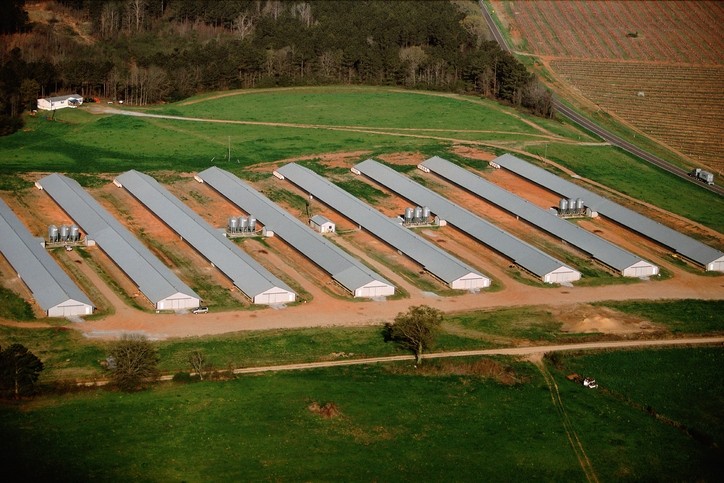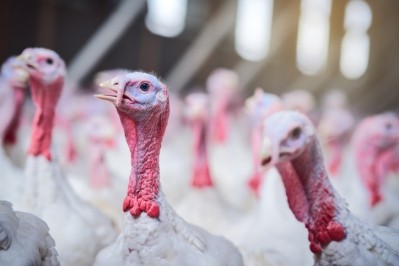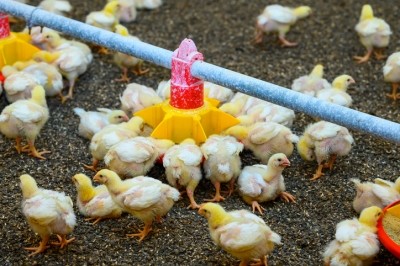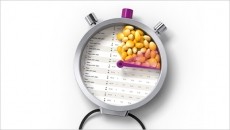New tool to better measure and communicate about sustainability of US poultry industry

The US-RSPE Sustainability Framework is a “scalable and independent” tool developed by all poultry stakeholders in the US.
It is designed to be used by US broiler, turkey, and egg companies, and is to set to launch in early 2022.
Next year will see US poultry value chains begin inputting data from 2021 into the US-RSPE Framework; that data will be anonymized and used to create a report on full supply chain sustainability and form a baseline, said the organization.
That data and subsequent years’ additions can then be used to better measure and better communicate about the sustainability of the US poultry industry.
The tool was four years in development; the process included two recently completed public comment periods, which generated just under 200 comments, and eight full supply chain pilot assessments across the US broiler, turkey and egg production sectors, completed earlier this year.
US-RSPE executive director, Ryan Bennett, told FeedNavigator that the tool will boost disclosure.
“Increased transparency into the true sustainability of the US poultry industry is one the greatest benefits of the US-RSPE Sustainability Framework. It can be hard for companies to balance being transparent with protecting their proprietary information.
“We’ve structured the framework in a way that anonymizes and aggregates data to allow us to publish far more information about the full supply chain than independent companies could. This benefits the full sector to address challenges and improve together, and it also provides data back to the users on how they stack up that can encourage more transparent disclosure independently."
Feed data
Feed is a major factor when analyzing the impact associated with poultry and eggs, said Bennett.
“The most recent life cycle assessments (LCAs) done for broilers and eggs puts the global warming impact from feed at about 70% of the total contribution associated with chicken and eggs. At the same time, those studies showed a rapid historical improvement associated with feed impacts both in terms of feed conversion and feed production efficiency. Therefore, feed is something that comes up in relation to poultry and has driven us to look at working more closely with grain, feed, and related businesses that play a role in addressing impacts and communicating improvements being made in the feed sector.”
Poultry welfare metrics
Is bird welfare a growing concern too in the US and how can the framework help raise the bar in relation to that kind of metric?
“Everyone thinks environment when they think sustainability, but our framework acknowledges three pillars for the poultry sector to tackle – people, planet, and poultry. Poultry welfare is an essential part of sustainable poultry production and routinely ranks at or near the top of issues to address in sustainability. We have spent quite a bit of time making sure that the framework allows us to start working more in this area. This means working with our members at United Egg Producers, National Turkey Federation, National Chicken Council, and others that have standard setting programs.
“We also work with the Professional Animal Auditor Certification Organization (PAACO) to build on the great work they are doing to ensure quality third party auditing and employee training. And, of course, our sister organization, the International Poultry Welfare Alliance, with whom we share resources, have provided insights from poultry welfare experts and academics.”
Industry structure
Asked whether the high level of vertical integration in the US poultry sector made it easier to develop and implement such a tool, Bennett said:
“Industry structure is slightly different between all three bird types for broilers, turkeys, and layers. They all have their unique challenges and strengths to build on, but not all are related to industry structure.
“The biggest thing that has made this process successful is the level of collaboration and commitment from everyone from independent growers to large integrators to researchers and allied industries.
“There’s a popular quote with unknown origin that says, ‘If you want to go fast, go alone. But if you want to go far, go together.’ It hasn’t been easy, but I’ve seen firsthand the commitment of those in poultry to go far.”
Charting a course for improvement
The setup of the Framework allows growers to get a more accurate picture of their own sustainability rating and challenges them to improve significantly without overwhelming them with unattainable goals, he said.
“What we’ve heard is that growers in particular need support in attaining their sustainability goals. The front-end investment of funds or labor resources that some existing programs require was flagged to us as a barrier to improvement. US-RSPE has built the Framework to be voluntary and include levels of participation to meet users wherever they are in their sustainability journey. These levels allow for users to take credit for where they can already show improvement, while at the same time allows them to chart a course for improvement in the future.
“This will be managed through a software that is still in development, so more details will be shared on this as the launch approaches. Essentially, everyone will have a way to participate and contribute at the level they are able.”














